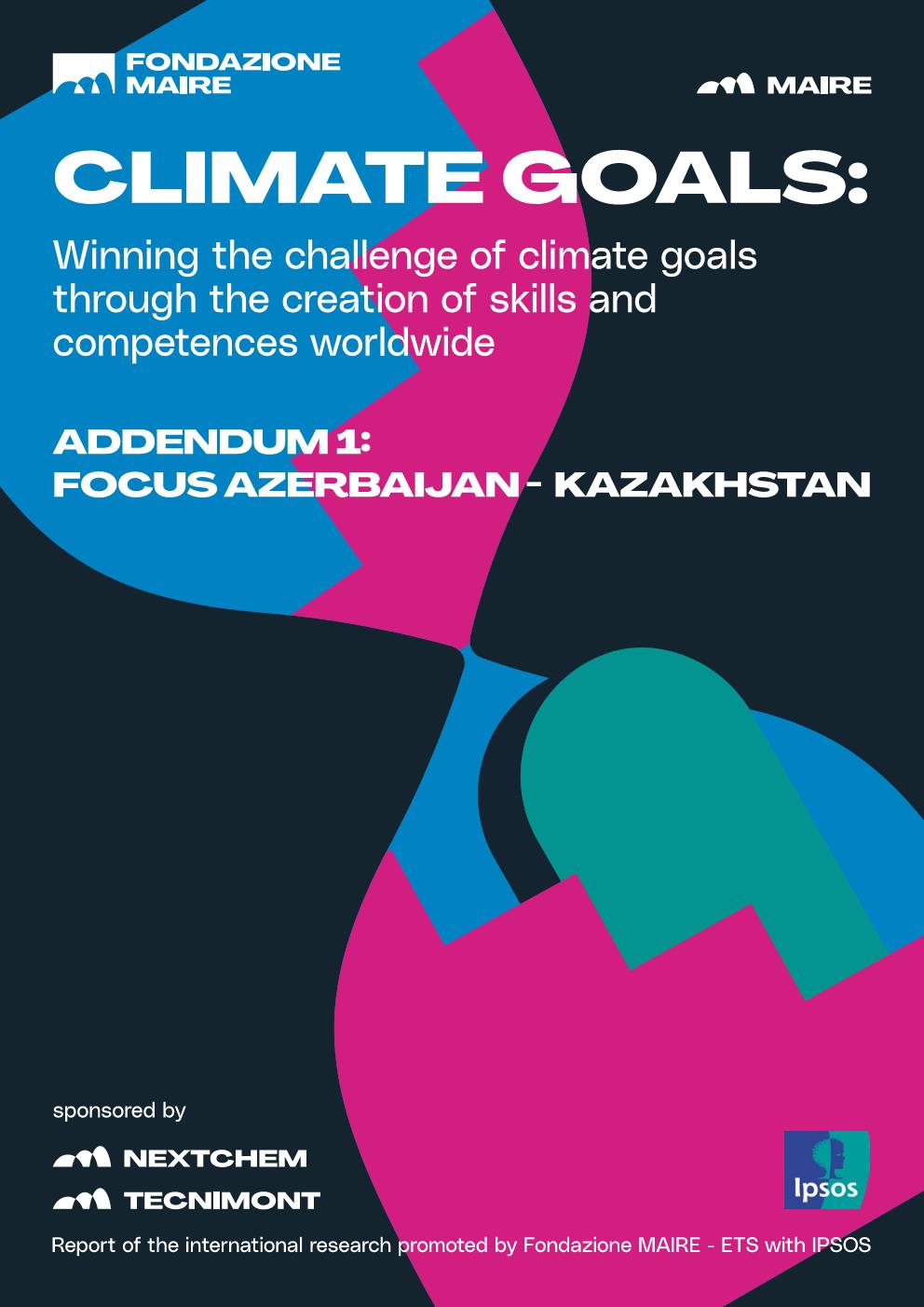CLIMATE GOALS

Winning the challenge of climate goals through the creation of skills and competences worldwide
ADDENDUM 1: FOCUS AZERBAIJAN AND KAZAKHSTAN
We believe that achieving climate goals requires skills, to be created rapidly, broadly, and inclusively, to educate on climate mitigation and adaptation and to develop innovative solutions for decarbonization. Fondazione MAIRE – ETS brings, also in this year, to the attention of the COP the relevance and perceived urgency of creating and upskilling skills for the energy transition.
On the COP29 in Baku, the General Director of Fondazione MAIRE – ETS Ilaria Catastini will discuss the new results of our research: “Climate goals: Winning the challenge of climate goals through the creation of skills and competences worldwide. Addendum 1” that this year has been extended to two new countries. Conducted by IPSOS, and based on the same survey questions, the paper’ addendum sees Azerbaijan and Kazakhstan as new protagonists.
The research now involves 4 continents, 12 countries (Italy, United Kingdom, Turkey, Saudi Arabia, United Arab Emirates, China, India, Algeria, United States, Chile, Azerbaijan and Kazakhstan), 2.000 surveys and 17 depth-in interviews with sustainability experts.
Let’s take a closer look at the new results.
The research shows two countries at the starting gate in the challenge of the energy transition, but which already possess a fairly strong awareness of its benefits, the inherent difficulties it entails, and the ingredients that are necessary to make it happen. Azerbaijan and Kazakhstan, with their unique economic and geopolitical positions, offer valuable insights into the challenges and opportunities associated with energy transition in regions that have historically relied heavily on traditional energy sources.
Azeris and Kazakhs seem to be saying there is a need for policies, regulations, new infrastructure, communication. And training. Investment in training that will stimulate the creation of soft skills such as critical thinking and problem solving and the building of knowledge regarding the analysis of environmental impacts, an aspect that has perhaps been underappreciated until now.
Want to know more? Download the paper!

CLIMATE GOALS - THE COMPLETE SERIES
In this section, you can find all the reports published since 2023 in the “Climate Goals” series: every year, the research expands to include new countries.
Read them all!


